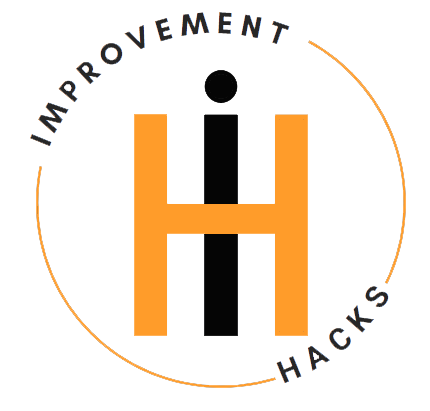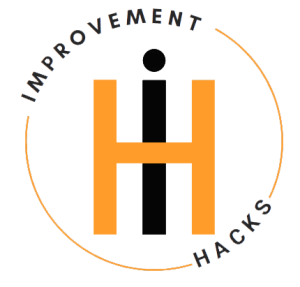Ever feel like time slips through your fingers, leaving you just that bit overwhelmed?
Believe it or not, there are tons of people that feel the same every day.
Lots of them struggle with balancing responsibilities, feeling like there just aren’t enough hours in the day.
The truth is, productivity isn’t about working harder, it’s about working smarter.
That’s where strong time management skills come in.
Learning how to manage your time well can help you get more done, reduce stress, and even make room for the things you actually enjoy.
But how do you develop these skills?
Ok, let’s start with the basics.
The Building Blocks of Time Management
Before diving into specific techniques, it’s important to understand a few key foundations that will set you up for success:
Become Self Aware
Are you making the most of your strengths?
To improve your time management skills, you got to know yourself.
Are you more creative or analytical?
Do you work better in short bursts or long stretches?
Being honest about your strengths and weaknesses will help you create a system that works for you.
Stay Organized
Clutter kills productivity.
A cluttered space can lead to a cluttered mind, making it difficult for you to focus.
Keeping your environment organized helps you stay efficient and reduces distractions.
A simple way to start is by setting aside a few minutes each day to tidy up your workspace.
The real challenge isn’t just organizing, it’s maintaining it.
Set Clear Goals
Without direction, it’s easy to get yourself lost.
Why do you want to improve your time management skills?
Whether it’s to advance in your career, have more free time, or reduce stress, writing down your goals gives you motivation and a clear roadmap to stick with the changes.
Now that you have the foundation, let’s explore key strategies to improve your time management skills.
Time Management Skills to Improve Your Productivity
Start Your Day Early
Mornings set the tone for the entire day.
Waking up early gives you a head start before any distractions begin to kick in.
Whether it’s exercising, planning your day, or tackling a big task, those quiet morning hours are golden.
Even waking up 30 minutes earlier can make a huge difference in how productive you feel.
Prioritize Your Tasks
Not everything on your to-do list is equally important.
Some tasks demand immediate attention, while others can wait.
A simple way to organize your tasks is the 1-3-5 rule:
- 1 Big Task: The most important or time-consuming task of the day.
- 3 Medium Tasks: Important tasks that require effort but are manageable.
- 5 Small Tasks: Quick tasks that don’t take much time but still need to get done.
This method keeps you focused without feeling overwhelmed and ensures you’re working on what truly matters.
Use a Schedule
A to-do list is helpful, but a schedule is even better.
Have you ever noticed how tasks stretch when you don’t have a set time for them?
Blocking out specific time slots for your tasks helps you stay on track and prevents procrastination.
If you don’t finish something, ask yourself: Does this need to be done today, or can it move to tomorrow?
Don’t forget to fit in a bit of personal time!
Self-care, exercise, or just a moment to relax are just as important as work.
Set Deadlines
Without deadlines, tasks can tend to drag on forever.
Have you ever put something off for weeks simply because there was no set end date?
I got to admit, I’m just as guilty as the next person where that’s concerned.
Setting realistic time frames keeps you motivated and prevents last minute stress.
For example:
- If you need to clean your house, set a goal to finish in one hour.
- If you want to lose weight, aim for 1-2 pounds per week instead of an unrealistic crash diet.
Deadlines help you work efficiently without feeling rushed and keep you accountable for completing tasks on time.
Learn to Delegate
Trying to do everything on your own can be exhausting.
Recognize when it’s better to let someone else handle a task.
For example, instead of spending hours trying to do your own taxes, hiring an accountant could save time and reduce errors.
Delegation isn’t a sign of weakness; it’s a sign of efficiency.
Focus on what you do best and let others handle the rest.
Stop Multitasking
Think you’re getting more done by multitasking?
Think again.
It may feel like you’re being productive by doing multiple things at once, but multitasking actually reduces focus and lowers work quality.
Instead, focus on one task at a time.
You’ll complete it faster and do a better job.
Research shows that only around 3% of the population can multitask efficiently without a drop in performance.
Take Control of Your Time
Your time is valuable, don’t waste it!
By applying these simple time management skills, you can take charge of your schedule, accomplish more, and enjoy more free time.
Imagine having the ability to finish your work efficiently and still have time for yourself, your family, or hobbies you love.
Don’t let another day slip away feeling unproductive.
Start small, experiment with different methods, and find what works best for you.
Your future self will thank you for it!






